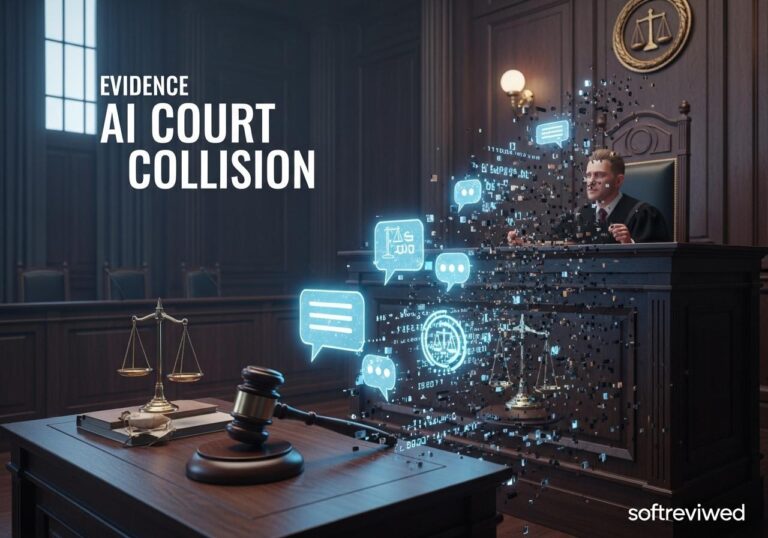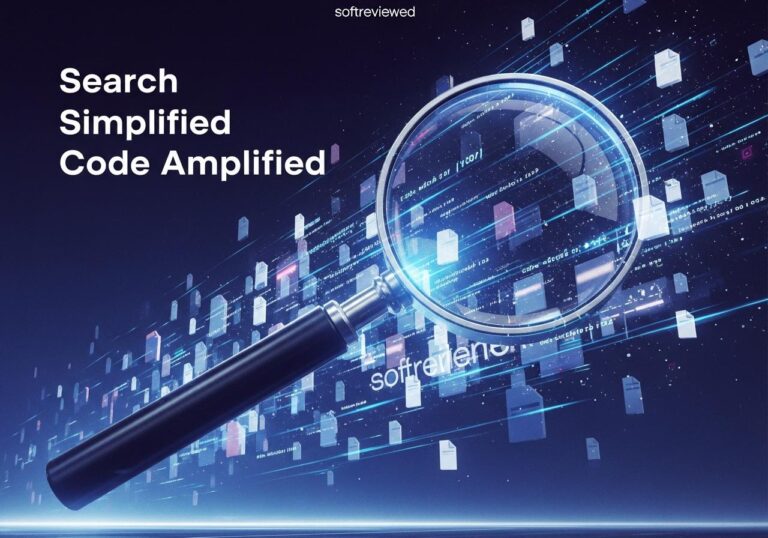Legal Hazards of AI-Generated Citations
How artificial intelligence is creating unprecedented ethical and legal challenges in the courtroom
AI-Generated False Legal Citations Lead to Sanctions
Attorneys who relied on ChatGPT to generate legal citations faced serious professional consequences when courts discovered the cited cases did not exist. These fabricated precedents resulted in formal sanctions against the lawyers who submitted them without verification.
Violation of Federal Rule 11(c)(3)
Legal professionals who submit AI-generated content without proper verification risk violating Federal Rule 11(c)(3), which prohibits presenting unverified claims to the court. This rule requires attorneys to conduct reasonable inquiry into factual and legal assertions before submission.
Necessity of Human Oversight
AI tools like ChatGPT require thorough human verification before legal submission. Courts increasingly emphasize that attorneys must personally validate all AI-generated content, as the technology is known to “hallucinate” convincing but entirely fictional legal precedents and citations.
Evidentiary Challenges with AI-Generated Evidence
Courts face increasing difficulty distinguishing between authentic and AI-generated legal evidence. This emerging challenge often requires expert testimony to validate sources, creating additional burdens on the judicial system and raising questions about the reliability of digital evidence.
Always verify AI-generated legal content with authoritative sources before submission to any court.
Introduction: The Shocking Truth Behind AI Chat Privacy
Imagine pouring your heart out to ChatGPT—sharing secrets, worries, or seeking advice—only to discover those chats could end up as evidence in a legal case. This isn’t science fiction. In July 2025, OpenAI CEO Sam Altman publicly warned that conversations with ChatGPT lack the legal confidentiality that protects discussions with a doctor, lawyer, or therapist. This revelation is sending ripples through the tech world and forcing all of us to rethink what we share with AI. As the tech landscape evolves, features like iOS 18 and ChatGPT integration are becoming commonplace, amplifying concerns about data privacy. Users must navigate the delicate balance between leveraging cutting-edge technology and safeguarding their personal information. This trend underscores a vital need for transparency in how AI platforms handle sensitive conversations.
In this article, we’ll explore Sam Altman’s statements, what they mean for your privacy, how the legal landscape is changing around chat data, and how you can stay informed and protected. From real-world legal battles to best practices and expert opinions, let’s unpack why your secrets with ChatGPT might not be as safe as you thought.
Sam Altman’s Big Warning: ChatGPT Chats Aren’t Privileged
OpenAI’s CEO, Sam Altman, took center stage on comedian Theo Von’s “This Past Weekend” podcast, making a candid confession: ChatGPT conversations are not covered by legal privilege. This means what you say to the chatbot isn’t shielded from use in potential lawsuits.
“People talk about the most personal stuff in their lives to ChatGPT. People use it—as a therapist, a life coach, [for relationship issues, etc.] And right now, if you talk to a therapist or a lawyer or a doctor about those problems, there’s legal privilege for it… We haven’t figured that out yet for when you talk to ChatGPT.”
— Sam Altman (July 2025, via Theo Von’s podcast)
Altman was direct: OpenAI and the broader AI industry haven’t yet created a framework that safeguards private chats with AI tools. If you spill your secrets and—a lawsuit, investigation, or legal request arises—OpenAI could be compelled to hand those chats over to authorities or courts.
What’s Legal Privilege—And Why Doesn’t ChatGPT Qualify?
📌 Legal privilege refers to the legal right that keeps certain communications confidential. Examples include:
- Doctor-patient confidentiality
- Lawyer-client privilege
- Therapist-client privilege
✅ When you confide in a professional, your information is protected by law—meaning it generally can’t be disclosed in court.
⛔️ ChatGPT is different. There are no laws granting “AI-client privilege.” If a court, government, or investigator demands your chat logs, OpenAI is currently required to comply (unless you use enterprise tools with custom contracts).
From Therapy to Court: How ChatGPT Chats Could Be Used as Evidence

Why would anyone use AI transcripts in legal cases? Let’s see some scenarios:
| Scenario | Possible Legal Use | Implications |
|---|---|---|
| Employment Disputes | Offensive chats used to prove harassment | Conversations with AI might be subpoenaed |
| Criminal Investigations | Chat about illegal acts appears in logs | Police could demand AI records as evidence |
| Divorce Cases | Confessions during relationship advice | Used for or against parties in court |
| Intellectual Property | Sharing trade secrets with AI | Could expose sensitive company info |
💡 Key Point: The legal world increasingly treats AI chats just like emails or text messages. If content is relevant to a case, it may be demanded—and entered as evidence.
The OpenAI Legal and Privacy Policy: What You Need to Know
OpenAI’s official privacy policy states they collect user data (including chat transcripts) primarily to improve their models and ensure user safety. Critically, the fine print includes:
- User data—including chats—may be accessed or disclosed if required by law, regulation, or legal process.
- Deleted chats are typically removed from OpenAI systems within 30 days, unless legally required to be kept (as per ongoing lawsuits, e.g., OpenAI v. The New York Times).
- Data is stored on servers in multiple jurisdictions and may not be protected by local privacy laws.
- Only ChatGPT Enterprise customers get control over data retention and privacy on a contractual basis.
Check OpenAI’s updated privacy details here.
Court Orders and the Changing Landscape: The New York Times Case
A major New York court order (May 2025) forced OpenAI to preserve every ChatGPT conversation, even “temporary chats” that would normally be deleted. This was in response to copyright claims, but the broader effect is clear:
✅ All consumer chat logs—deleted or not—must stay on OpenAI servers “until further court order”.
⛔️ This voids user expectations of data deletion and privacy, at least until the legal battle ends.
Legal experts warn this precedent could ripple across the tech industry, affecting any company offering AI chat services.
| Who Is Affected? | What Changes? |
|---|---|
| Regular users | Chats may be kept even if deleted, retrievable by law |
| Businesses using OpenAI APIs | Contractual privacy may be overridden by court |
| Users outside the US | Local privacy protections may not stop US courts |
Expert Perspectives: Why This Matters
💬 Maria Jensen, Legal Analyst:
“AI chats can be used as evidence isn’t new, but the awareness around it needs to increase. Many people skip privacy policies, but those often allow for legal compliance and data retention. The real surprise is how few users realize how exposed they are.”
💬 Sam Altman, OpenAI CEO:
“I think that’s very screwed up. I think we should have the same concept of privacy for your conversations with AI that we do with a therapist or whatever—and no one had to think about that even a year ago.”
💬 Dr. Vivek Subramanian, AI Policy Researcher:
“Until regulators create a clear, universal AI-privacy framework, every conversation with a chatbot must be treated as potentially public or discoverable.”
Best Practices for Protecting Your AI Conversations
✅ Privacy Strategies:
- Share only what you’d be comfortable repeating in court, especially sensitive topics.
- Use pseudonyms or avoid referencing personally identifiable information.
- Prefer enterprise or business-class AI tools, which sometimes offer stronger privacy controls (but always check contracts!).
- Regularly check AI providers’ privacy policies for changes.
📌 What Not to Do:
- Rely on “delete chat” or “incognito mode” as a true erasure solution—legal holds might override these settings.
- Vent about illegal, unethical, or highly confidential issues unless you truly understand the risk.
AI and Privacy Law: Where Are Governments Headed?
Governments and privacy watchdogs are now scrambling to catch up. Here’s what’s on the horizon:
- The EU AI Act and various national data protection regulators are expanding privacy rules for AI platforms.
- In the US, ongoing lawsuits (like the NYT vs. OpenAI) are reshaping the boundaries of what companies must retain and produce in court.
- Expect new legislation or amendments to focus on “digital privilege” — proposing protections similar to attorney-client or doctor-patient privilege for AI-powered tools. This is still a debate and not law anywhere as of July 2025.
Real-World Implications: How This Impacts Daily AI Use
📌 Bulletpoints to Remember:
- Anything you say to ChatGPT can be stored and, under rare but real circumstances, handed over as evidence.
- Even "deleted" chats may be retained due to court orders, overriding your intent to erase.
- Privacy policies are evolving—regularly review them.
| Privacy Aspect | Human Therapist/Lawyer/Doctor | ChatGPT/Public AI |
|---|---|---|
| Legal Privilege? | ✅ Yes | ⛔️ No |
| Usage as Evidence? | ⛔️ Only rare exceptions | ✅ Routinely if ordered |
| Data Retention? | Strictly limited by law | 30 days or indefinitely under legal orders |
User Story: When ChatGPT Became More Than a Digital Therapist
Meet Priya, a college student from Mumbai. She turned to ChatGPT for relationship advice, thinking it as safe as talking to a school counselor. Months later, her messages were referenced as part of a family court dispute after her device was seized—she had no idea her “private” digital diary could become part of a public case. Priya’s experience is a warning for everyone: AI is helpful, but privacy law hasn’t kept up yet.
What’s Next? The Future of AI, Evidence, and Trust
Will lawmakers create new protections? Can companies like OpenAI add true “AI privilege” to our data privacy toolkit? Altman says he hopes so—but until then, treat every chat as discoverable.
“We should have the same concept of privacy for your conversations with AI that we do with a therapist—and no one had to think about that even a year ago.”
— Sam Altman
Stay Smart, Stay Safe: Your Takeaway for 2025
- Don’t tell your AI secrets you wouldn’t want on public record.
- Advocate for stricter AI privacy laws and read policies carefully.
- Check out OpenAI’s security and privacy commitments here.
As AI becomes more intertwined with our lives, being “AI-privacy aware” is as critical as locking your doors or safeguarding your online bank credentials. The technology is brilliant and transformative—but remember, the digital walls are thinner than you think.
Quick FAQ: ChatGPT, Privacy, and the Law
📌 Q: Can anything I say to ChatGPT be used in court?
✅ A: Yes, if relevant to a case and compelled by a court.
📌 Q: Is deleting my chats enough?
⛔️ A: Not always—court orders can require companies to preserve all records, even deleted ones.
📌 Q: Are business and enterprise customers safer?
✅ A: Somewhat. They have more contractual controls, but court orders can still override these in certain situations.
Further Exploration
For more details, review OpenAI’s official security and privacy page. Stay informed and make your AI conversations mindful—what you type today could echo in a courtroom tomorrow.







